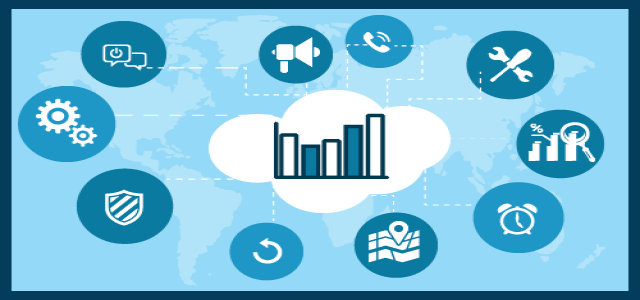
3 developmental trends triggering the global retail analytics market growth
The expanding penetration of big data across the retail sector is likely to promp global retail analytics market to surge at a prodigious pace over 2020-2026. Vivid brands and retailers are massively adopting retail analytics to comprehend the customer buying patterns along with deriving meaningful data insights. What more has fostered the growth of retail analytics is the advancement in big data analytics which has effectively supported businesses to target and identify potential customers.
In this aspect, the customer management enables the retailers to obtain actionable insights from myriad customer data and develop novel strategies to augment customer loyalty. As a matter of fact, Nokia, in 2018, rolled out an AI-based customer management analytics software supporting the retailers address customer issues via automated recommendations and real time query resolution. That said, the customer management segment is anticipated to depict a CAGR of 20 per cent through 2026.
Retail analytics market players, including Adobe Systems, HCL Technologies, Oracle, Microsoft, SAS Institute, and various others are accomplishing significant research and development investments in order to bring up solutions with newer capabilities and product launches to score an edge over the competitors. Considering these, a research report by Global Market Insights, Inc., cites that the worldwide retail analytics industry size is envisaged to surpass a mammoth of 20 billion, in terms of revenue, by the end of 2026.
Request sample copy of this report @ https://www.decresearch.com/request-sample/detail/319
The global retail analytics industry is extensively driven by a plethora of developmental trends that enable it to mark a niche in the worldwide market. Enumerated below are the three trends laying huge emphasis on transforming the business dynamics of retail analytics market:
Deployment of data analytics in large enterprises
The proliferation of data analytics and its adoption by various leading retailers with an assurance of business growth and effective operation has enabled the large enterprises segment to record a growth rate of 20 per cent over 2020-2026.
Moreover, a large number of retailers have massively adopted cloud computing due to extensive use of ERP and CRM applications, giving ample room for SaaS-based retail analytics solutions expansion.
Make Inquiry about this report @ https://www.decresearch.com/inquiry-before-buying/319
Penetration of cloud based solutions and technologies
Cloud computing has emerged out as a need of the hour across various industrial sectors with retail being the one. Retailers have been finding it difficult to gather customer insights and outcomes from the information obtained through conventional business intelligence tools. Probably, this has enabled the retailers to opt for cloud based technologies owing to their high storage, scalability, and economic subscription. Cloud solutions in the retail analytics offer agility to businesses and the ability to enhance collaboration and communication with the partner and clients.
As per estimates, the cloud segment, in 2019, procured an overall market share of 35 per cent and is likely to grow at a rate of 20 per cent over 2020-2026.
Expanding investment in AI and demanding customers in Europe region
Artificial Intelligence has picked up pace, lately, across various regions. Europe, in this regard, is estimated to observe a CAGR of 20 per cent through 2026 perhaps attributing to robust digitalization, shifting consumer preferences, growing retail shrinkage, expanding investments in AI retail, and inconsistency in supply chain. Retailers across the region, possess a top level of technological vigilance and are progressively embracing new analytical tools to develop their business capabilities on a large scale.
© 2025 groundalerts.com. All Rights Reserved.